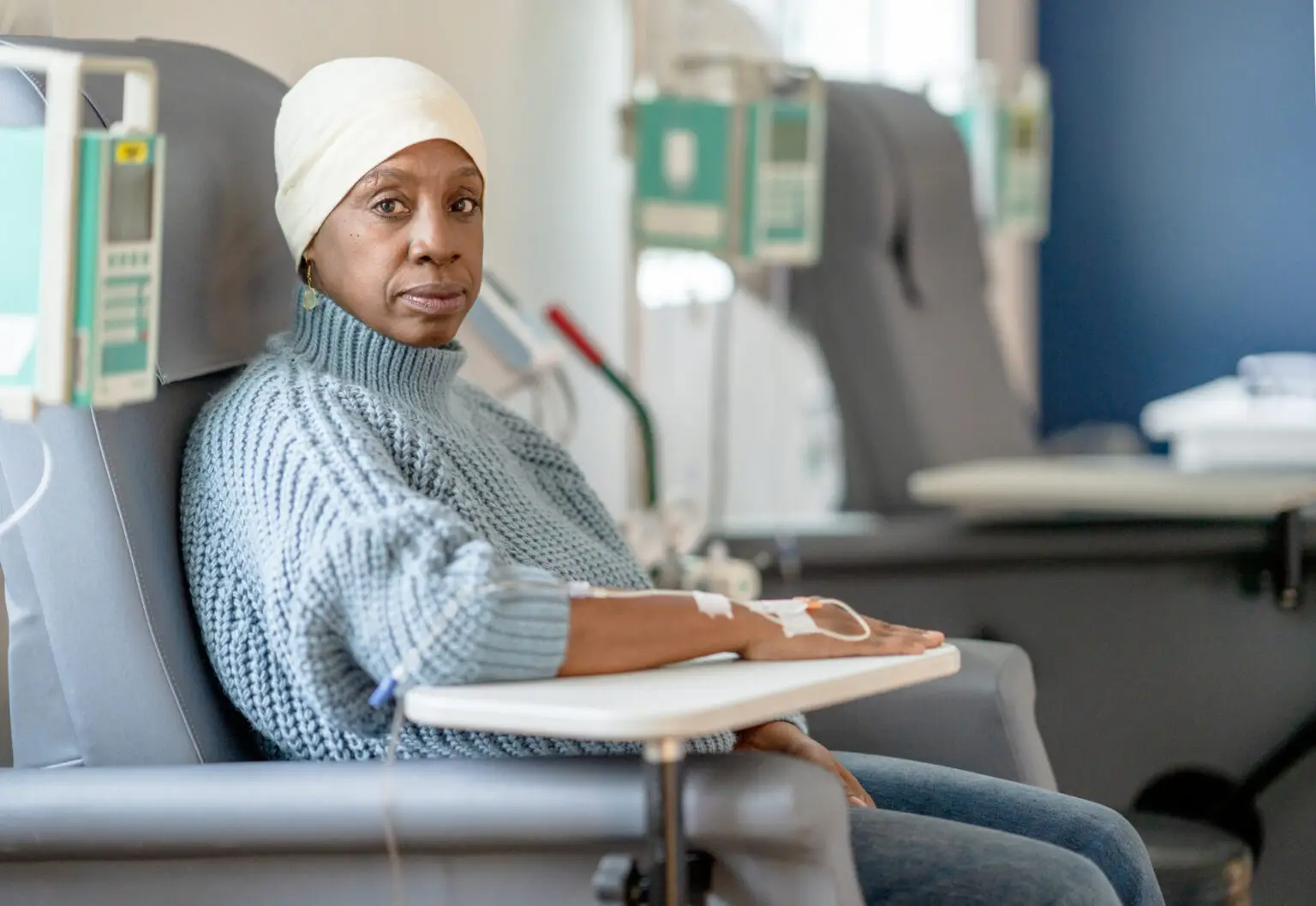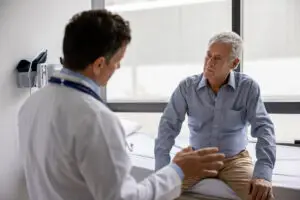While not all breast cancer patients receive radiation therapy it is a common component of breast cancer treatment. In some cases radiation is used alone and in others cases it is combined with additional therapies. Knowing what radiation side effects in cancer are common can help you prepare for your treatment and can make experiencing those side effects less scary.
Skin changes
One of the radiation side effects in cancer is changes in the skin. These changes can occur gradually throughout treatment and some may last for months or years after treatment. You may experience the following changes that feel and look similar to a sunburn:
- Soreness
- Blisters
- Peeling
- Redness
- Itching
- Spider veins
- Darkening of the skin
How to cope
If you are struggling with skin changes during or after treatment there are a few steps you can take to increase your comfort levels and to help heal your skin.
- Moisturize the skin—especially affected areas—daily with a product such as A&D or Aquaphor
- Where loose clothing made of breathable materials like cotton
- Wear bras without underwire
- Keep the water temperature in your shower or bath warm and not hot
- Avoid using any personal hygiene products that have fragrance
Fatigue
A 2020 study uncovered that between 62% and 85% of people undergoing cancer treatment report experiencing cancer-related fatigue. While there is no specific treatment your doctor can give you for fatigue, they can help you come up with a plan for combating it. Fatigue is a much greater issue than simply feeling tired and taking a nap or getting a good night’s rest often isn’t enough to overcome it.
Signs of fatigue include:
- Lack of energy
- Needing to sleep more
- Being tired after sleeping
- Lack of desire
- Inability to perform normal daily activities
- Struggle with concentrating
- Difficulty finding words
For a more in depth look at fatigue, you can read more here on the Outcomes4Me blog!
How to cope
To cope with fatigue you can try the following tactics.
- Eat a healthy diet
- Pursue relaxing treatments like massage or yoga
- Engage in stress reducing activities like meditation
- Stay hydrated
Heart or lung problems
Unfortunately, some patients experience lung inflammation radiation side effects in cancer for years after undergoing therapy. Especially if they also went through chemotherapy treatment. In the event of left breast radiation, heart injuries can also occur and can lead to heart disease or conditions.
How to cope
Your doctor is key here and will help you develop a treatment plan that will reduce your risk for heart or lung problems. For example, to avoid injuring the heart or lungs, lying on your stomach instead of your back and allowing the treated breast to hang through a hole in the treatment table can reduce exposure for both your heart and lungs.
Lymphedema
According to the Journal of Clinical Oncology as many as 83% of breast cancer patients can experience lymphedema. Lymphedema is a medical condition caused by disruption or damage that occurs to someone’s lymphatic structures such as lymph nodes or lymph vessels. The lymphatic system cleans, filters, and processes protein rich fluid and when that fluid becomes stagnant, it can back up and lead to tightness, swelling, and discomfort.
Lymphedema symptoms can arise years after receiving radiation therapy and are caused by scarring and blockages. These symptoms can include:
- Aching
- Heaviness in arm or hand
- Tingling or numbness
- Non-visible swelling
- Itching or tightness of the skin
How to cope
You should have a plan in place with your doctor to reduce the risk of lymphedema ever occurring and you should both be looking for any signs of it arising. Catching lymphedema early and receiving treatment for it is the best way to stop this condition from worsening. If you experience any swelling in your hand, arms, or joints, or have trouble with mobility alert your doctor right away.
To help avoid lymphedema from occurring or worsening you can:
- Have injections and blood drawn on the opposite arm of the arm that is at risk
- Carry heavy items like purses on the arm that isn’t at risk
- Use a clean razor when shaving underarms
- Do exercises to improve lymph flow
- Work with a massage therapist or physical therapist for manual lymphatic drainage treatment
- Eat a low-sodium diet
- Avoid extreme temperatures
To learn more about what the symptoms of lymphedema are and how you can cope with them, check out our recent blog post on this topic on the Outcomes4Me blog!
The takeaway
Radiation is a common component of breast cancer treatment plans. While it does have some challenging side effects, there are steps you can take to manage them to find some relief during and after treatment. You can talk to your doctor and care team before and during treatment about possible radiation side effects you can expect, how to reduce the risk of developing those side effects, and how to manage them if they arise.
Tracking symptoms related to radiation, or any part of your treatment, can help you and your doctor understand their frequency and severity. You can track and manage your symptoms in the Outcomes4Me App, so that you can bring that data with you to your next doctor’s appointment. Download the app today!



